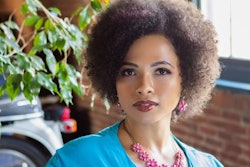A few weeks ago, a student of color who never sought professional help came to my walk-in support hours and concluded that the pain she held in from a childhood trauma caused anxiety and affected her relationships. She did not feel comfortable going to the counseling center—seeking therapy was not common in her community. She didn’t trust people—many systems had already failed her. I was the first person she told. She later said it was liberating to talk to someone and not repress her suffering and shame anymore.
Sadly, this student’s story is not unusual. According to a supplemental report from the U.S. Surgeon General, “striking disparities in mental health care are found for racial and ethnic minorities.” The report finds that minorities do not access mental health services in proportion to their numbers or they receive a poorer quality of mental health care. In many cultures, there is a stigma against seeking mental health services stemming from a history of negative experiences with service providers, little awareness of services, cultural barriers that impede access, limited minority providers or different cultural norms regarding personal disclosure.
At northern New Jersey’s Montclair State University, where underrepresented minorities make up 35 percent of undergraduate enrollment, minority students face many challenges. Students balance home, work and school with limited time and resources for self-care. For students who are already marginalized because of their race, ethnicity, class, religion, sexual orientation or other difference, stressors are further exacerbated by discrimination and microaggressions. Such stressful lives place these students at greater risk of experiencing mental health crises, particularly if they don’t receive the on-campus support they need. Access to culturally competent mental health services, therefore, is critical to retention.
Given our students’ diverse backgrounds, there are also diverse perspectives on what it means to seek help. As the coordinator of Outreach and Community Intervention, my mission is to reach those students who do not come to the Counseling and Psychological Studies Center.
Joining students in their cultural worlds is critical to increasing access and providing multiculturally competent clinical services on a diverse university campus. At Montclair State, several nontraditional clinical outreach programs have been developed to provide students a variety of safe spaces for managing their mental health needs. The key to the growth and success of these programs has been persistence in promoting programs to minority students; enlisting professors, administration and staff as program stakeholders; running programs in central locations on campus; and co-leading programs with other departments that carry less stigma.
One of our most successful programs is the Agents of Change Empowerment Certification Program, a collaborative, multidisciplinary, clinical outreach program developed primarily for first-generation minority college students. The program integrates concepts of health and wellness, cognitive behavioral therapy, life coaching, multicultural counseling and group therapy. Students participate in supportive discussions in which they learn how to better manage their stress and time, juggle their responsibilities, overcome procrastination and work on setting limits—moving forward in reaching their goals by building academic, leadership and life skills. The program culminates in an awards and networking reception where students are introduced to potential employers and mentors on campus.
Connecting Across Cultures is a discussion group for students interested in connecting with other students and dialoguing across cultures about experiences at the university and beyond, such as racism, homophobia, adjustment and immigration stress, discrimination, oppression and political trauma back home.
Living Out Loud is a support group for lesbian, gay, bisexual and transgender students in the process of coming out and who want to move toward “living out loud” rather than in silence. Students who participate in LOL may not be ready to reach out to the LGBT Center but are ready to take steps toward coming out. Let’s Talk is a program that provides walk-in consultation and support hours at several different locations across campus. It was developed by Cornell University, Gannett Health Services to increase access to students at risk because of cultural stigma or other barriers to care.
As I have gotten to know students through these programs, I have learned more about their ethnic biases toward therapy. Students say running into me on campus helps them see therapy as something natural and “normal,” just another resource on campus. Our goal is for students to never feel alone and know there is always someone they can reach out to through whatever means feel best for them.
Dr. Sudha Wadhwani is a licensed psychologist and coordinator of Outreach and Community Intervention at Montclair State University, Counseling and Psychological Services (CAPS).





















